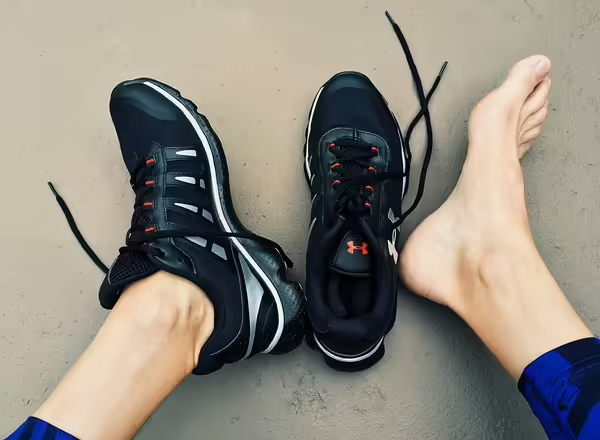
Foot Care and Diabetes
Diabetes can damage nerves and reduce blood flow to your feet, making foot problems a risk for anyone with diabetes. Foot problems are the reason one in five people with diabetes seek hospital care, according to the American Diabetes Association. The link between diabetes and foot or leg amputation is well known. Less well known is that, most people can prevent serious foot problems if they follow a few simple steps.
Prevention is key! Take off your shoes and socks while waiting for a check-up with your doctor. A complete foot exam should be done at least once a year, and more often if you have foot problems. Your doctor may refer you to a foot specialist known as a podiatrist. Do not try to trim corns or calluses yourself. Your health care provider or podiatrist can take care of any foot problems, and can also trim your nails if you are unable to safely do so on your own. Contact your health care provider anytime you notice a cut, break in the skin, or change in foot color or shape. Furthermore, never ignore changes in foot sensitivity or foot pain.

- Wash and dry your feet daily using mild soap and water.
- Thoroughly pat feet dry with a soft towel.
- Rub feet with lotion to prevent cracking, but do not put lotion between toes.
- Examine your feet daily.
- Look at the top and bottoms of your feet. If unable to do so yourself, use a handheld mirror or ask someone else to assist you.
- Look for cracked or dry skin.
- Check for sores, blisters, and cuts.
- Feel for warmth and check for areas of tenderness and redness.
- Monitor feet for corns, calluses and ingrown toenails.
- Do not walk around bare-foot. Wear shoes or slippers that will protect your feet against cold and moisture.
- Wear socks made of natural fibers such as cotton or wool and change socks daily.
- When purchasing new shoes, try them on with the socks you plan on wearing. When wearing new shoes limit to one hour at a time until broken in.
- Protect your feet from temperature extremes. Test hot water before submerging your feet because having neuropathy can make your feet less sensitive to hot and cold. Avoid using heating pads, hot water bottles, and electric blankets.
Don’t pop any blisters. Place a bandage over any blister or sore and wear a different pair of shoes. Do not ignore any foot issues. Sores, cuts, and blisters may not heal as quickly with diabetes. Report any foot injuries to your health care provider right away. Check shoes before putting them on to assure there are no rough or jagged edges. Wear special shoes if recommended by the podiatrist. If you are Medicare age, ask about coverage for special shoes.